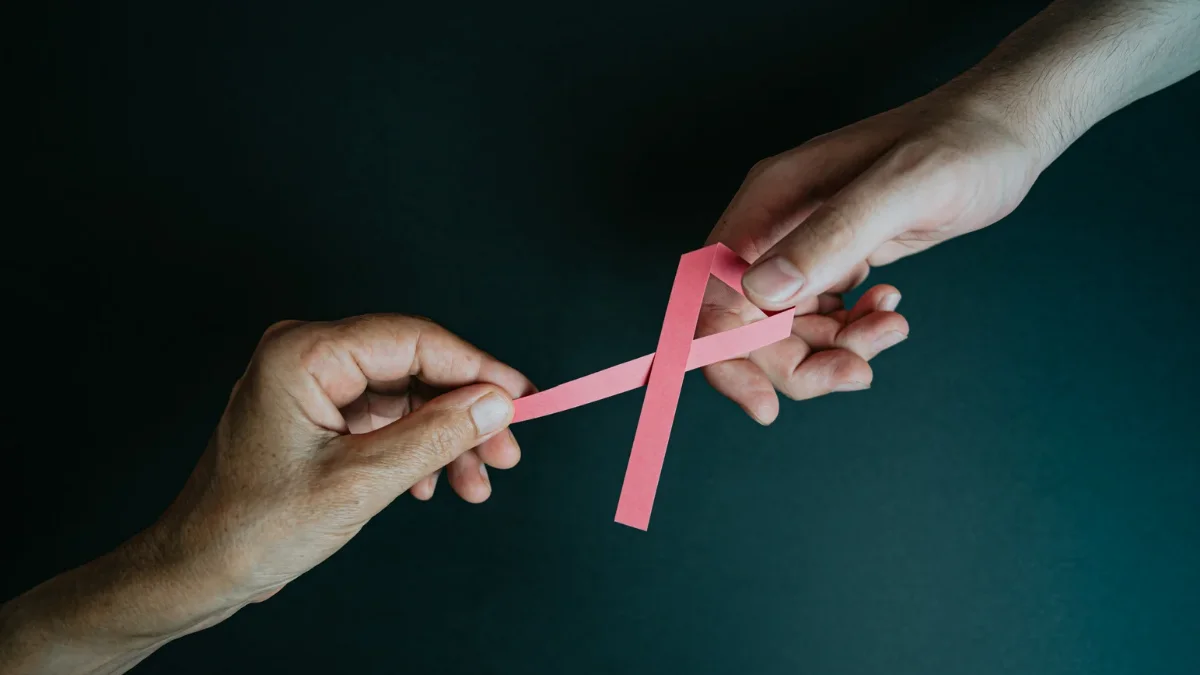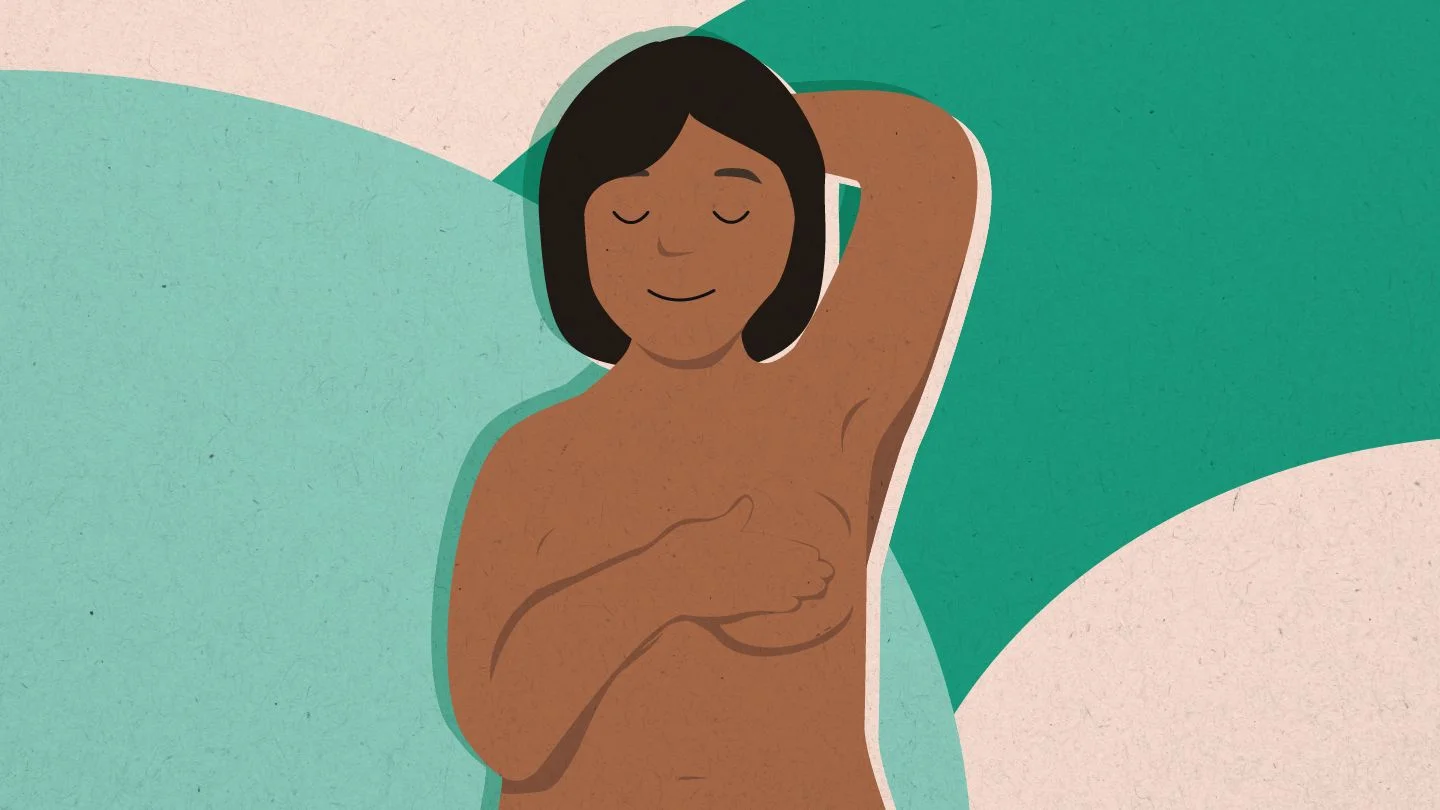Women in Pakistan have reportedly become strong allies to combat breast cancer – enlarging of breast cells thereby forming tumors – that claimed as many as 13,500 lives and affected nearly 26,000 in the country in 2020. GharPar, a Pakistani mobile application that serves home beauty services to women in Pakistan launched a new campaign-aka-initiative in collaboration with Indus Hospital to self-check breast cancer, overcoming social stigma against the topic of “breasts” in the country.
GharPar, a Pakistani mobile application that serves home beauty services to women in Pakistan launched a new campaign-aka-initiative in collaboration with Indus Hospital to self-check breast cancer, overcoming social stigma against the topic of “breasts” in the country.
It is not easy to talk about breast cancer in Pakistan citing social taboos. Women have been reportedly hesitant to talk about the disease with doctors and even their spouses. According to a report published by the Middle East campaign, a crew of waxing ladies are breaking these taboos and passing breast cancer awareness to women across Pakistan, thereby teaching them how to self-examine themselves. These ladies act as a safe catalyst as other women share intimate connections with them, particularly because it is easy for the latter to open up about their bodies.
The initiative, primarily used as an educational awareness tool, breaks patriarchal barriers to talking about breasts and secondly is a remarkable initiative to detect early symptoms of breast cancer among women in Pakistan. The waxing ladies have been trained in a way so that they offer safe and personal ways to self-examine breast cancer to promote early detection as that is the key to protecting a woman’s life. According to the initiative, these salon ladies are booked monthly which means women in Pakistan can now self-examine themselves monthly and also spread similar knowledge to their peer groups.
CEO of GharPar Technologies Pvt. Ltd, Shameelah Ismail, who has a history of breast cancer in her own family, said this new and personal-healthcare initiative is very close to her heart. According to Ismail, ‘Despite having a history of breast cancer, many female family members refuse to get themselves tested. The app’s initiative will offer female clients the option to choose this service. Every time our clients call us for services, I hope they are reminded to check themselves for a self-checkup.‘
Silent crisis: breast cancer in Pakistan
According to a report published The Dawn, Pakistan has reported the highest number of breast cancer cases among Asian countries. As per the statistics, one in every nine women in the country has the probability of being diagnosed with the disease. A detailed report, published on 1 November 2024, on breast cancer awareness said the disease took away the lives of 40,000 women each year and affected nearly 90,000 more in the country.
The figures are emphatically dangerous. Dr. Asghar Hussain Asghar, Director of Karachi Institute of Radiotherapy and Nuclear Medicine (KIRAN), in a report said, the medical institute nearly treats 100,000 cancer patients in a year. Among them, 30 percent of these patients are women who have been diagnosed with breast cancer. The doctor added that there is no prevention of this disease, however, if early detection happens, the rate of survival amplifies.
In November 2024, a conference was organised in Karachi by the Continuing Medical Education (CME), Jinnah Postgraduate Medical Centre (JPMC), and the Pakistan Islamic Medical Association (PIMA) to address the growing rate of breast cancer in Pakistan. At the conference, the Principal of Dow Medical College (DMC), Professor Saba Sohail, presented a research paper that showed misinformation and misconceptions about breast cancer and its data. According to the research paper, almost 64 percent of women in Pakistan believe that radiation causes breast cancer, while another 63 wrongly claim biopsy is the primary cause.
According to the research paper, almost 64 percent of women in Pakistan believe that radiation causes breast cancer, while another 63 wrongly claim biopsy is the primary cause.
There is also a bit of superstitious involved as the meticulous report added almost 39 percent of Pakistani women believe the “evil eye” causes breast cancer. According to Professor Sohail, ‘Unfortunately, most breast cancer cases are diagnosed at the second last or last stages. These are recognised as stages III and IV. This primarily happens due to avoidance of screening or reluctance to self-examining.’ “Timely mammographic screening can significantly put down deaths caused by breast cancer,” the professor added.
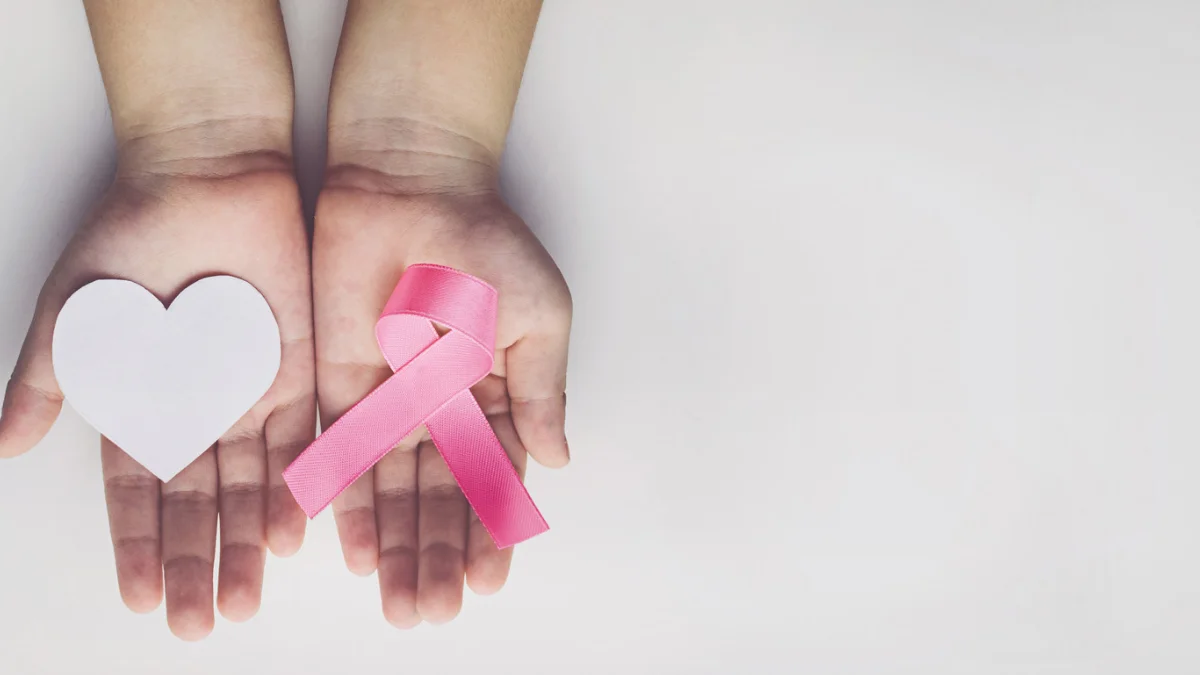
Other leading statistics presented in the report by Dr. Raja Rahul from the Civil Hospital Karachi showed that between 2020-2024 the hospital reported 5,051 cancer cases. Out of these, 34 percent were breast cancer patients. Additionally, in 2024 alone, the medical institute registered 731 cancer patients, among them 140 were breast cancer patients.
According to a report by The News, men in Pakistan have also a high risk of contracting breast cancer. Earlier the risk was reportedly one percent, however, now it has increased to four percent. And these alarming statistics are a call for concern. But what are the primary reasons for contracting this deadly disease?
Social stigma around ‘breast’ and its aftermath on women
The social stigma attached to the word “breast” is the primary cause of death for many Pakistani women as they are reportedly hesitant to get themselves screened or go to male doctors. While getting screened is the first step to self-examination, many women in the country are reported to be too mousy. A young woman from Karachi said, ‘Many women from Pakistan’s less developed regions come for treatment only at the advanced stage of the disease. When I questioned these women regarding the causes of late detection, they said they felt shame in talking about breast cancer.‘
A country that is dominated by a staunch patriarchal (social) culture wherein women receive slurs when they seek early diagnosis is something that has failed to garner top headlines. According to a report by the DW, using the word “breast” is regarded as “immoral” in the country. People usually use the word “cancer for women” when they talk about breast cancer in Pakistan.
According to a report by the DW, using the word “breast” is regarded as “immoral” in the country. People usually use the word “cancer for women” when they talk about breast cancer in Pakistan.
The dire fright of being ostracised by their husbands citing stigmatisation and imposter syndrome in females also dampers the chances of early detection and further treatment of breast cancer. Mukhtaran Mai, Pakistani women’s rights defender informed DW that unmarried women presume that their spouses might abandon them when they know about the disease, while others think diagnosis may reduce their chances of getting hitched to a man.
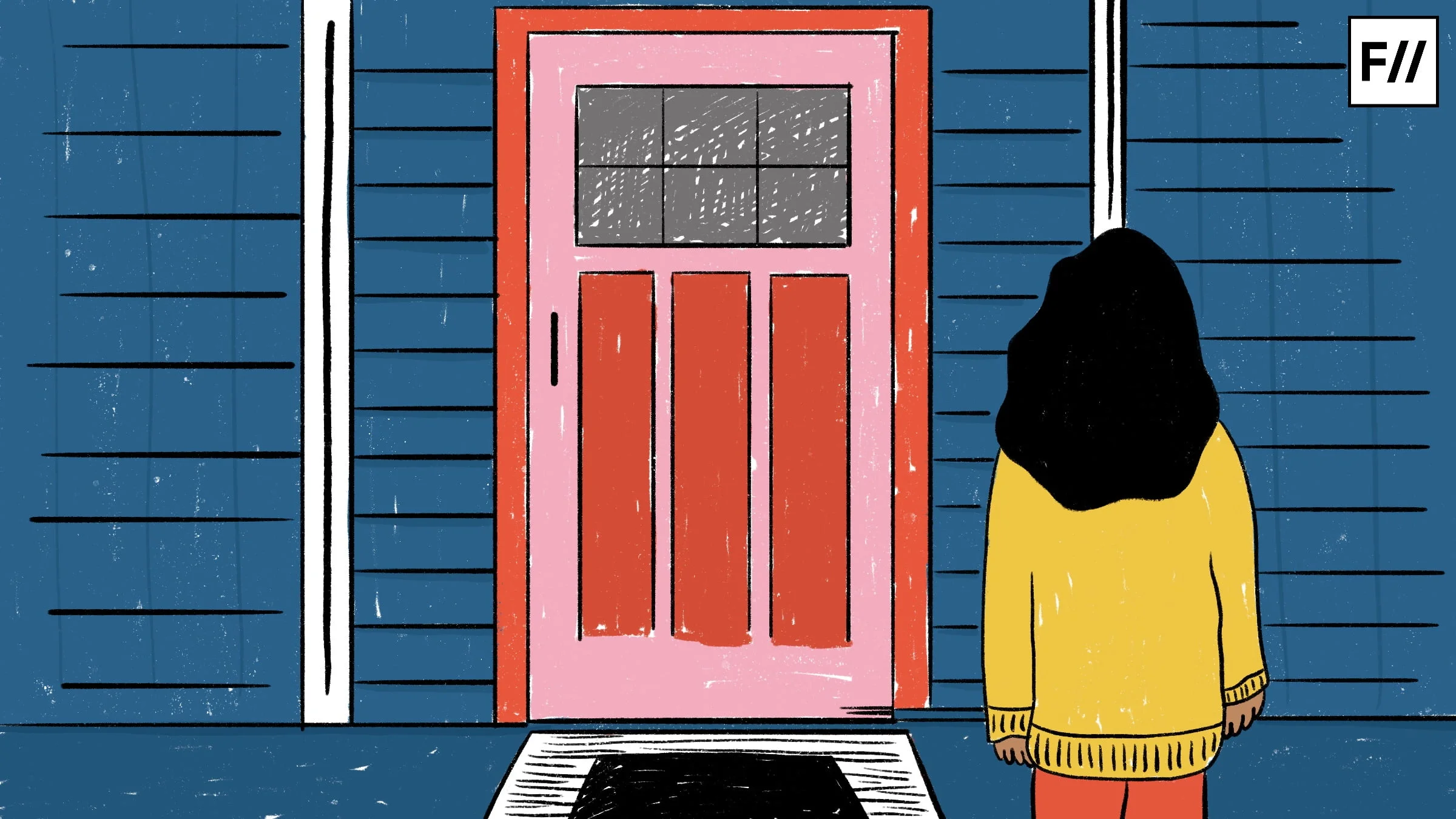
Gulnaz Ayaz, a young educationalist in Lahore witnessed a small lump on her left breast in 2014. After doctor visits, she finally got to know that the lump was malignant. When she shared her health conditions with her husband he made insensitive remarks about her “losing hair”. Her in-laws treated her badly. Subsequently, her husband divorced her, leaving the young Ayaz to manage everything alone.
In 2020, Ayaz combated breast cancer with all the vigor in her heart. While she overcame the disease, something in her changed and it was to bring change in her ultra-traditional society: to spread breast cancer awareness in Pakistan. Since her recovery, she has been visiting multiple schools and universities to share her ordeal and the significance of early diagnosis. The survivor claimed that people do not talk about breast cancer even in cities. The situation in rural Pakistan is impossible to imagine.
The reluctance to talk about the disease, ignorance of first diagnosis, woman’s age and employment status, fear of treatment and ultra-primitive beliefs – in the form of alternative medicine – has resulted in 89 percent of late diagnoses and 59 percent of advanced diagnoses among Pakistani women. While 37-year-old Ayaz battled the disease with self-determination, strength and the support of her father and siblings, several women in Pakistan do not even know about breast cancer.
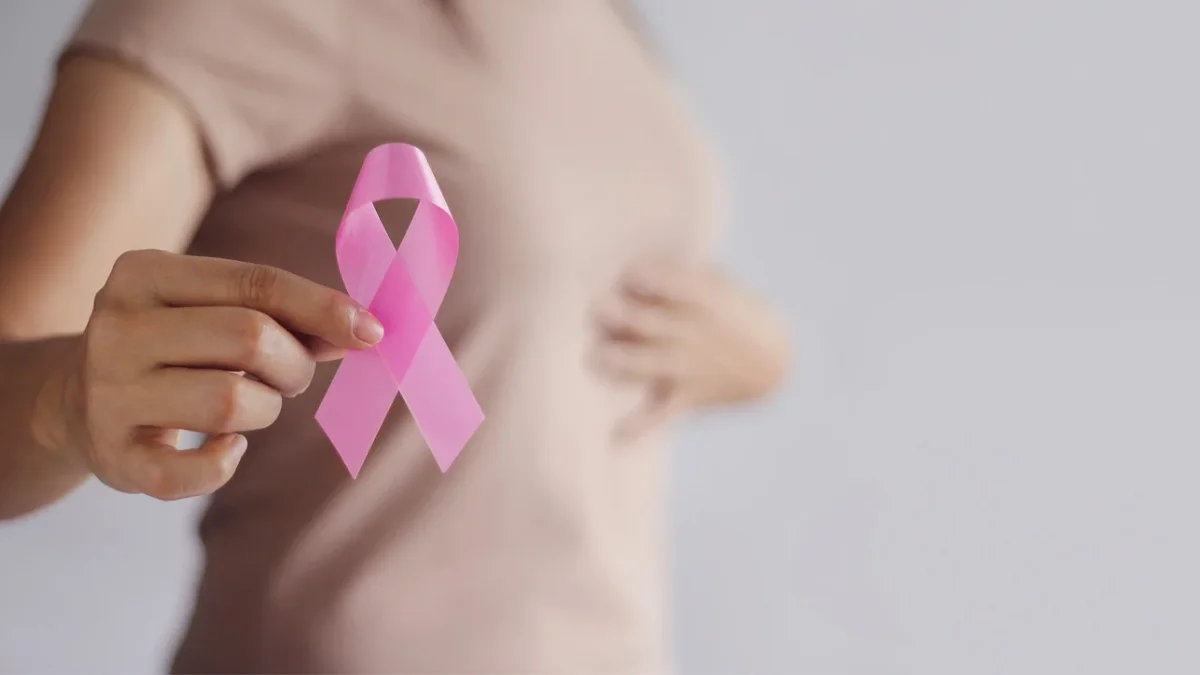
A survey conducted, involving 600 women, by the Rawalpindi General Hospital on breast cancer showed that roughly 70 percent of the female participants had no clue about the disease, which is shameful (not the word breast).
Ayaz and her allies
Young educationalist Ayaz and her allies like the waxing ladies from the GharPar mobile app are women of courage and perseverance who are toiling and fighting for a healthy Pakistan where women should have the right to be informed and educated and to learn aspects of personal care (health). They are together eradicating a taboo attached to their body parts, particularly to the word “breast”. However, there is a long way to go.
